In a world where pollinators are facing numerous challenges, it is becoming increasingly important for us to play an active role in supporting their populations. By transforming our gardens into pollinator paradises, we can not only enjoy the beauty of flowering plants but also contribute to the well-being of vital pollinators such as bees, butterflies, hummingbirds, and more. In this blog, we will explore the benefits of attracting pollinators, provide tips on creating a pollinator-friendly garden, and offer a list of plants that are known to attract specific pollinators.
The Importance of Pollinators:
Pollinators, including bees, butterflies, moths, hummingbirds, beetles, and flies, play a crucial role in the reproduction of flowering plants. They facilitate the transfer of pollen from the male part (stamen) to the female part (pistil) of flowers, enabling the fertilization process that leads to the formation of seeds and fruits. In addition to their pivotal role in plant reproduction, pollinators contribute to the biodiversity of ecosystems and support the production of many food crops.
Creating a Pollinator-Friendly Garden:
Provide a variety of flowering plants: Choose a wide range of plants that bloom at different times throughout the year. This ensures a consistent food source for pollinators across seasons.
Include native plants: Native plants have evolved alongside local pollinators and are well-adapted to their needs. They often provide more nectar, pollen, and habitat options compared to non-native species.
Opt for a diversity of flower shapes and colors: Different pollinators are attracted to different flower shapes and colors. By offering a variety of options, you can accommodate a broader range of pollinator species.
Avoid or minimize pesticide use: Pesticides can be harmful to pollinators. Whenever possible, opt for organic pest control methods or choose plants that are naturally resistant to pests.
Plants and Their Pollinator Partners:
- Bee Balm (Monarda): Attracts bees, butterflies, hummingbirds.
- Purple Coneflower (Echinacea): Attracts bees, butterflies, birds.
- Sunflower (Helianthus): Attracts bees, butterflies, birds.
- Lavender (Lavandula): Attracts bees, butterflies.
- Milkweed (Asclepias): Attracts butterflies, bees.
- Salvia (Salvia spp.): Attracts bees, butterflies, hummingbirds.
- Butterfly Bush (Buddleja): Attracts butterflies, bees, hummingbirds.
- Liatris (Liatris spicata): Attracts bees, butterflies.
- Goldenrod (Solidago): Attracts bees, butterflies.
- Agastache (Agastache foeniculum): Attracts bees, butterflies, hummingbirds.
Remember, this is just a small selection of plants that attract pollinators. Research and choose plants suitable for your specific region and climate. Additionally, consider including plants that provide nesting sites, such as native grasses, shrubs, and trees, to further support pollinator populations.
By creating a pollinator-friendly garden, you can make a meaningful contribution to conserving and protecting these vital creatures. By providing abundant food sources and suitable habitats, you will attract a diverse array of pollinators to your garden, enhancing its ecological value and enjoying the beauty of nature’s guests. Start small, experiment, and watch your garden come alive with fluttering butterflies, buzzing bees, and the vibrant colors of life.

Remember, together we can make a significant difference in the preservation of pollinators and the ecosystems they support.
-
 6″ Hibiscus, Various Colors$38.50
6″ Hibiscus, Various Colors$38.50 -
 Dracula Celosia$33.00
Dracula Celosia$33.00 -
 Balmy Rose Beebalm$27.00
Balmy Rose Beebalm$27.00 -
 Miss Molly Butterfly Bush$49.99
Miss Molly Butterfly Bush$49.99 -
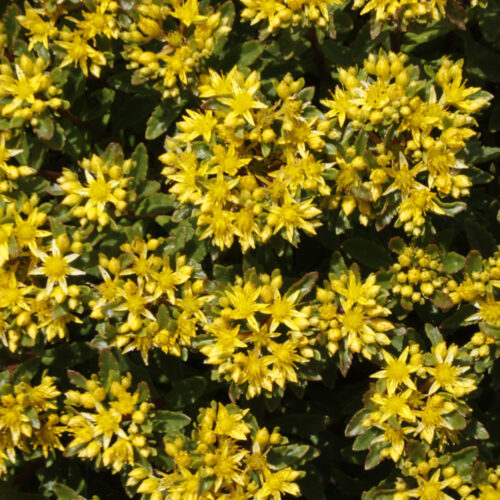 Rock ‘N Round™ Bright Idea Stonecrop, 1 Gal.$29.99
Rock ‘N Round™ Bright Idea Stonecrop, 1 Gal.$29.99 -
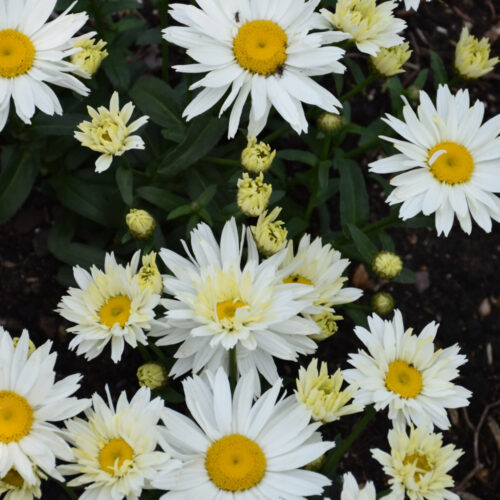 Cream Puff Shasta Daisy, 1 Gal$29.99
Cream Puff Shasta Daisy, 1 Gal$29.99 -
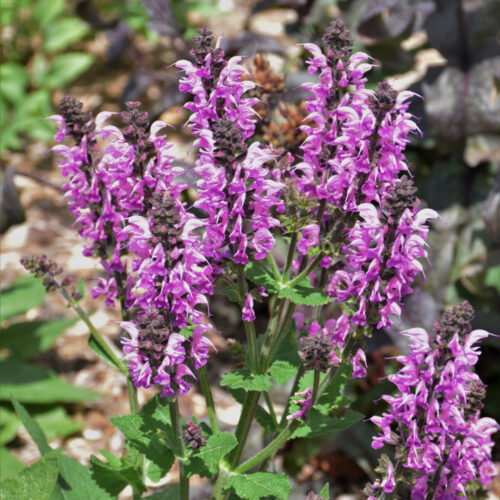 Proven Winners® Color Spires® Back to the Fuchsia Sage, 1 Gal$29.99
Proven Winners® Color Spires® Back to the Fuchsia Sage, 1 Gal$29.99 -
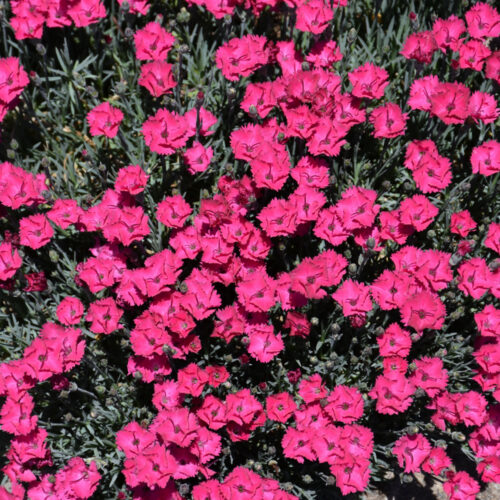 Proven Winners® Paint The Town Red Pinks, 1 Gal$31.99
Proven Winners® Paint The Town Red Pinks, 1 Gal$31.99 -
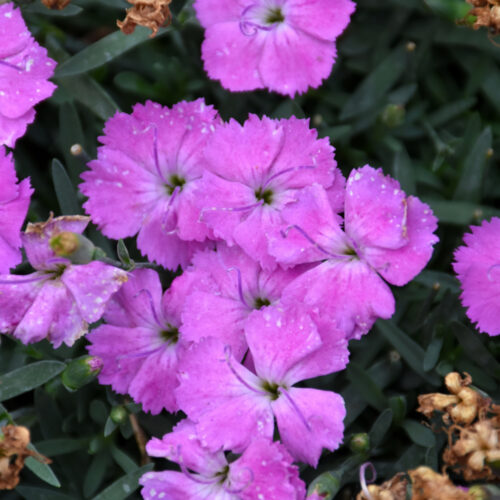 Proven Winners® Paint The Town Fuchsia Pinks, 1 Gal$31.99
Proven Winners® Paint The Town Fuchsia Pinks, 1 Gal$31.99 -
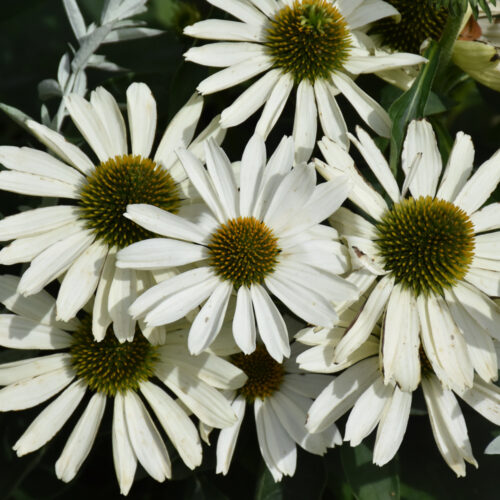 Color Coded® The Price Is White Coneflower, 1 Gal$31.99
Color Coded® The Price Is White Coneflower, 1 Gal$31.99 -
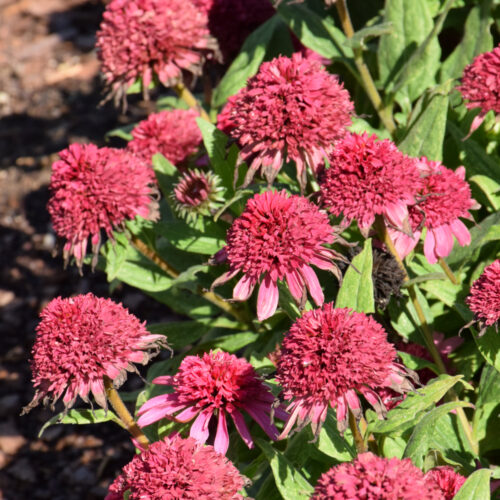 Double Coded® Raspberry Beret Coneflower, 1 Gal$34.99
Double Coded® Raspberry Beret Coneflower, 1 Gal$34.99 -
 Proven Winners® Amazing Daisies® Banana Cream II Shasta Daisy, 1 Gal$29.99
Proven Winners® Amazing Daisies® Banana Cream II Shasta Daisy, 1 Gal$29.99
More Recent Posts
Exploring the Wild: The Growing Trend of Chaos Gardening
In the world of gardening, there’s a new trend that’s taking root and flourishing: Chaos Gardening. This innovative approach to cultivating green spaces embraces the beauty of randomness, encouraging an unstructured and natural garden environment. If you’re tired of meticulously planned rows and manicured lawns, Chaos Gardening might just be the perfect horticultural adventure for…
Preserving the Yield: The Trend of Pickling Garden Vegetables
In an era where farm-to-table practices and sustainable living are gaining momentum, preserving the harvest has become an art that not only extends the life of fresh produce but also connects us to traditional food preservation techniques. One such time-honored practice that’s making a strong comeback is pickling garden vegetables. This trend is more than…
August Garden Glory: Top Tips for a Flourishing Summer Oasis
As the sun’s warmth envelops us and the days stretch longer, August signals the height of summer and an important period for garden enthusiasts. This month offers a wealth of opportunities to maintain and nurture your garden for a bountiful harvest and a captivating display of colors and textures. Whether you’re a seasoned gardener or…
Understanding Soil pH: The Key to Successful Gardening
Soil pH plays a crucial role in the health and productivity of plants, yet it is often overlooked by many gardeners. However, understanding soil pH is essential for creating an optimal environment for plants to thrive. In this blog post, we will delve into the concept of soil pH, its significance, how to test it,…
Embrace Drought Tolerant Landscaping: A Sustainable Oasis in Arid Times
In a world where climate change poses increasing challenges, drought tolerant landscaping has emerged as a practical and environmentally responsible solution. By carefully selecting and nurturing drought tolerant plants, you can create a beautiful landscape that conserves water, reduces maintenance requirements, and supports biodiversity. In this blog, we will explore the numerous benefits of drought…
A Complete Guide to Amending Your Garden Soil
Creating and maintaining healthy garden soil is essential for the success of any garden. Amending your soil is a crucial step in improving its structure, fertility, and overall health. By enhancing the soil composition, you can ensure your plants receive the necessary nutrients and support for robust growth. In this blog, we will explore when…













